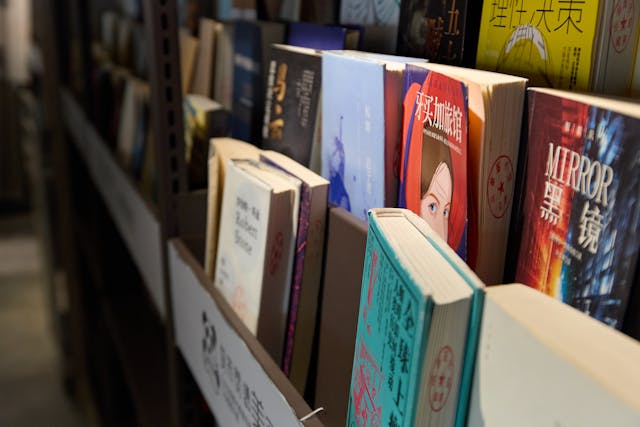WHAT DOCUMENTS DO YOU NEED TO TRANSLATE TO APPLY FOR AN INTERNATIONAL SCHOLARSHIP?
If you’re considering enriching your personal and professional experience by applying for an international scholarship and studying abroad, you should know that you’ll need to complete a series of administrative procedures that can make the difference between being accepted or not.

Don’t miss out on accessing top-level academic programs and boosting your résumé by overlooking the details we mention in this article.
One of these details, and one that is often underestimated, is the certified translation of documents.
In this article, we’ll explain which documents you need to have translated if you want to apply for an international scholarship, why it’s crucial to use professional translations, and which mistakes you should avoid to ensure your application is valid.
WHY DO YOU NEED TO TRANSLATE DOCUMENTS TO APPLY FOR AN INTERNATIONAL SCHOLARSHIP?
If you want to study abroad, it’s important to know which documents you need to have translated for your international scholarship application.
Universities receive applications from all over the world, which is why they require academic and administrative documents to be translated into the official language of the program—usually English, though depending on the institution, French or German are also common.
In many cases, academic documents are also required to have a certified translation, which guarantees their legal validity and accuracy with respect to the original document.
A poor, incomplete, or uncertified translation can cause your application to be automatically rejected, regardless of your academic or personal achievements.
DOCUMENTS YOU NEED TO TRANSLATE TO APPLY FOR AN INTERNATIONAL SCHOLARSHIP
Below, we present the most common documents that institutions require when applying for an international scholarship.
- Academic transcript or certificate of grades
This is one of the most important documents you need if you want to apply for an international scholarship. Academic transcript reflects your academic performance throughout your studies. It must include courses taken, grades obtained, credits, and the duration of the studies. It is essential to have an accurate and professional translation.
If you’re not sure how to handle this process, here you’ll find everything you need to translate your academic transcript.
- University degree or diploma
Another commonly requested document for translation, if you want to apply for an international scholarship, is a copy of your degree or certificate of qualification. This document must include the name of the degree obtained, the issuing university, dates, and official stamps.
- Motivation letter and résumé
Although a certified translation of your motivation letter and CV is not always required, it is highly recommended that these documents are flawlessly written in the language of the program or scholarship. That’s why you should avoid automatic or free translation tools and count on a professional translator who can ensure you receive the best possible translation.
It is important to show that you can communicate your ideas and motivations in the language of the program.
- Letters of recommendation
If your letters are originally in another language, you will need to have them translated. In some cases, the instructors themselves can write them directly in English. If that’s not the case, make sure you have a professional translation that preserves the tone and content of the original letter.
- Language certificates
Certifications such as TOEFL, IELTS, DELF, among others, are usually issued in English or French. However, if you have certificates in another language, you will need to have them translated for them to be accepted by international institutions.
- Economic or financial documentation
Some scholarships require you to demonstrate your financial situation through income statements, bank statements, or family guarantees. If these documents are in another language, they must also be translated by a professional.
- Additional documentation depending on the country or institution
Depending on your destination, you may be asked to provide other documents such as a birth certificate, passport, medical certificates, or a criminal record. All of these, if drafted in a language other than the required one, must be officially translated.
THE IMPORTANCE OF TURNING TO A PROFESSIONAL SERVICE
When applying for an international scholarship, translating word for word is simply not enough. Institutions expect documents to reflect the original content exactly, maintaining formats, stamps, academic terminology, and legal standards.
That’s why it’s highly recommended to trust specialized companies in academic translations that employ certified or sworn translators. This type of service guarantees not only the accuracy of the text but also its acceptance by universities, embassies, and international organizations.
KEY TIPS FOR TRANSLATING DOCUMENTS CORRECTLY
- Check the specific requirements for the program or institution. Not everyone requires the same type of translation. Some accept certified translations, while others only accept sworn translations.
- Always request both a digital and a hard copy. Some platforms only allow digital uploads, while others require physical shipment.
- Check the deadlines carefully. A professional translation can take between 2 and 5 days, depending on the volume and complexity.
- Don’t leave your documents until the last minute. Translation is often the final step and can cause stress if you haven’t anticipated it.
COMMON MISTAKES WHEN TRANSLATING DOCUMENTS FOR INTERNATIONAL SCHOLARSHIPS
We recommend avoiding the following mistakes, as they can ruin even the best application:
– Using automatic translators like Google Translate: don’t take chances with an automatic translator—an inaccurate translation could result in your application being rejected.
– Do not include signatures, stamps, or official letterheads: these details are essential to prove the validity of the documents.
– Submitting uncertified translations when certification is required: make sure you know which documents require a certified translation and hire a professional to provide them. Failure to do so may invalidate your application.
– Not translating all the requested documents: Make sure all files are in the required language.
For more details about these errors, check out our dedicated guide to translating academic documents:
CONCLUSION
Applying for an international scholarship requires planning, attention to detail, and, above all, an impeccable presentation of your documents. Having official, accurate translations produced by professionals is an investment that can open doors to studying abroad and transform your academic and professional future.
Don’t leave this step for last. Make sure to accurately translate your academic transcript, diploma, certificates, and any other required documents. And above all, do it with trusted professionals who understand the importance of every word.




